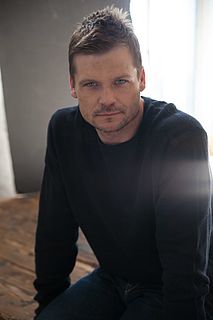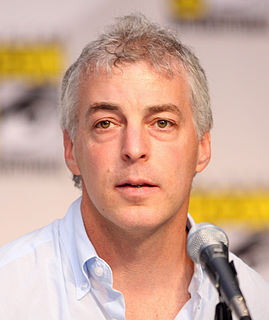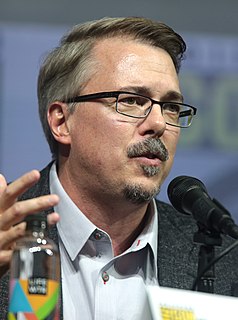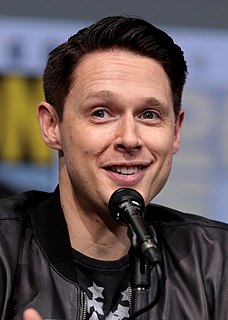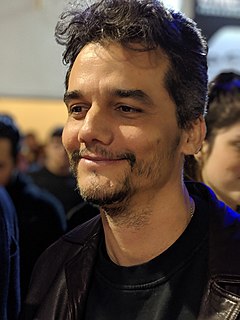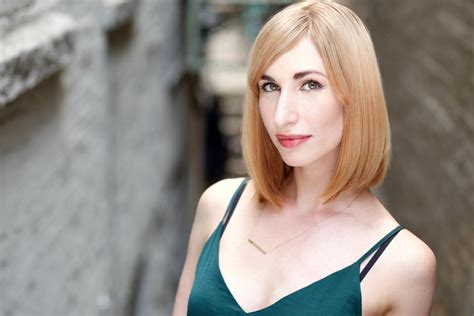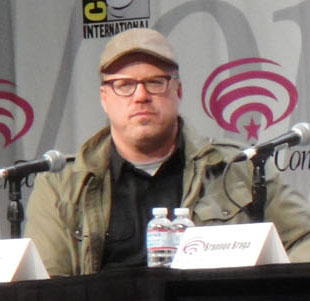A Quote by Bailey Chase
'Longmire' is more of a show about the characters, and you couldn't pay a bigger compliment than to want to know more about my character, or the characters on the show.
Related Quotes
What's actually amazing is that, after a couple of years of living with characters and writing characters and talking about characters, as we sit in the writers room and break episodes, it strikes you, every once in awhile, that you're talking about a character that's played by the same actor, who you've been talking about forever. We talk about a character dying, so you get emotional, and then you realize, "Oh, but wait, that actor is still on the show."
What interests Sam Mendes are characters and relationships, and he was a genius at giving you the freedom to create the type of character you want, and also to explore and have fun with your fellow actors. For him, characters and relationships are really the heartbeat of the film, and then the action is the backdrop. By developing the characters, he makes you care that much more about the action and going on a journey with the characters.
A typical TV show is always about protecting the franchise - it's all about stretching it out as long as you can take it. And it's about taking the characters in any given hour as far as you can take them, but then resetting them more or less back to zero so at the beginning of the next week, so they're still the character you know and love.
These superhero movies are starting to give more love to not only black characters but also to more female characters, which is necessary because you have boys and girls of all colors who are looking at these superheroes saying, 'I want to be that. I want to look like that. Show me somebody that I can automatically connect with.'
Some TV shows are like really good novels in that there are enough episodes that you start to have your own feelings about how the characters should act. When the scriptwriters go slightly wrong, when they make the character make a left turn that he or she wouldn't do, you know enough about the characters to say, "No, that's not what she would do there. That's wrong." You can actually argue with a TV show in a way that you can't do as much with movie - you inhabit a TV show in the way you inhabit a novel.
It [The Esemblist] is also about the generation of audience members that are watching shows and listening to us at the same time; hopefully, in time, when they listen to our show and then go see a show, they'll realize even more what it takes to make a show, and they'll know even more about everybody on stage, rather than just people above the title of the show.
And one of the things that's interesting about how they're doing the show is that the audience almost knows more than the characters do in some of these scenes, and the extent of that is unique. So it's grown into a different show in a way. It's sort of grown into a different experience watching it.
I think that I write much more naturally about characters in solitude than characters interacting with others. My natural inclination - and one that I've learned to push against - is to give primacy to a character's interior world. Over the three books that I've written, I've had to teach myself that not every feeling needs to be described and that often the most impactful writing more elegantly evokes those unnamed feelings through the way characters speak and behave.
